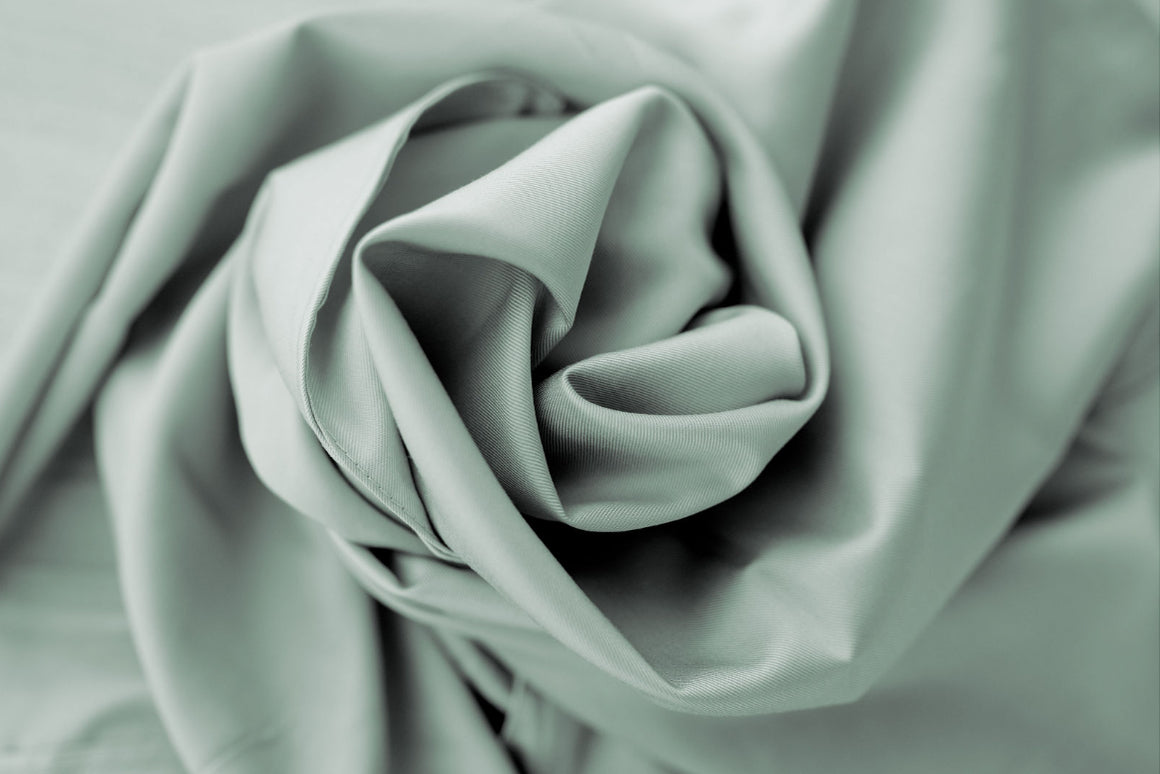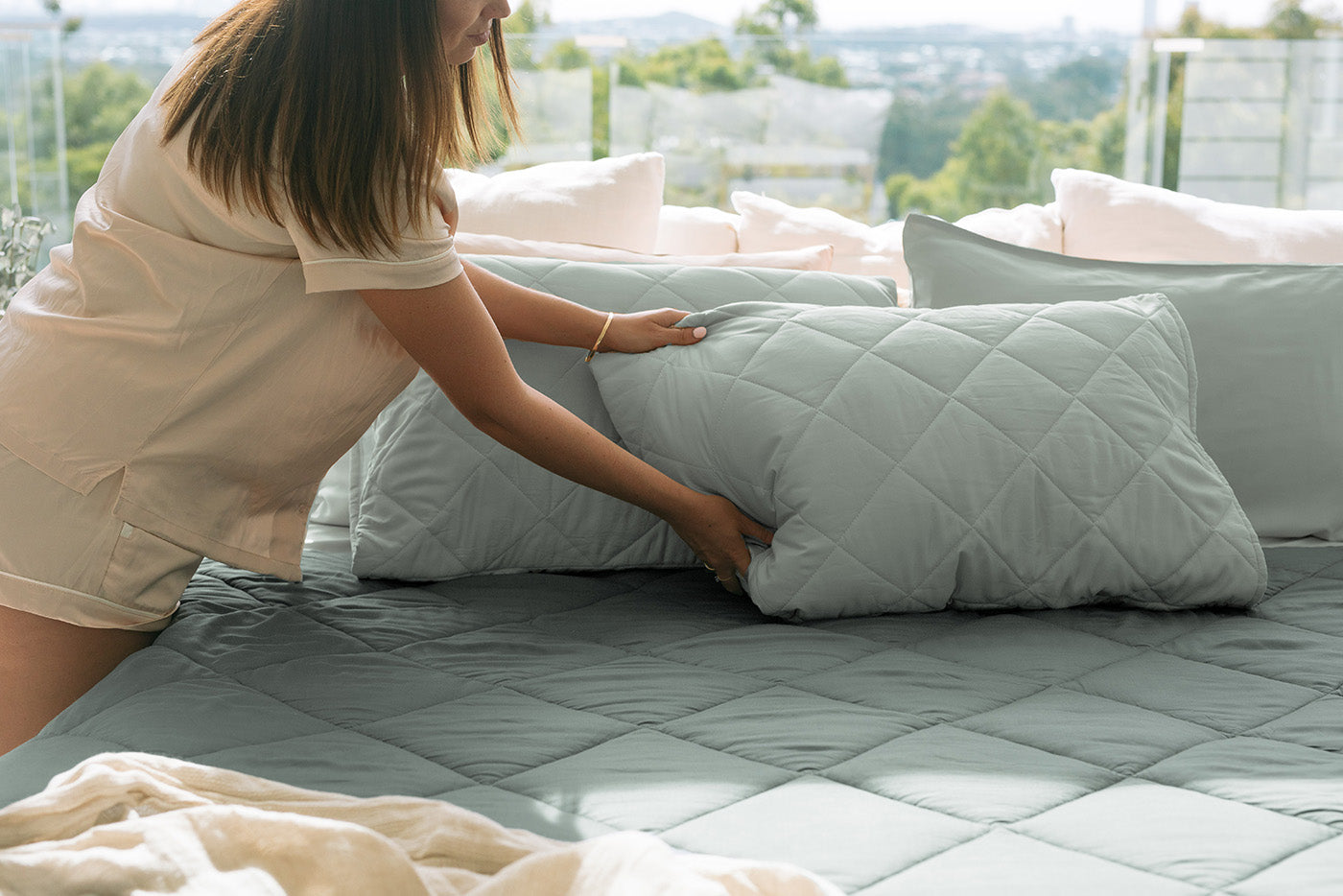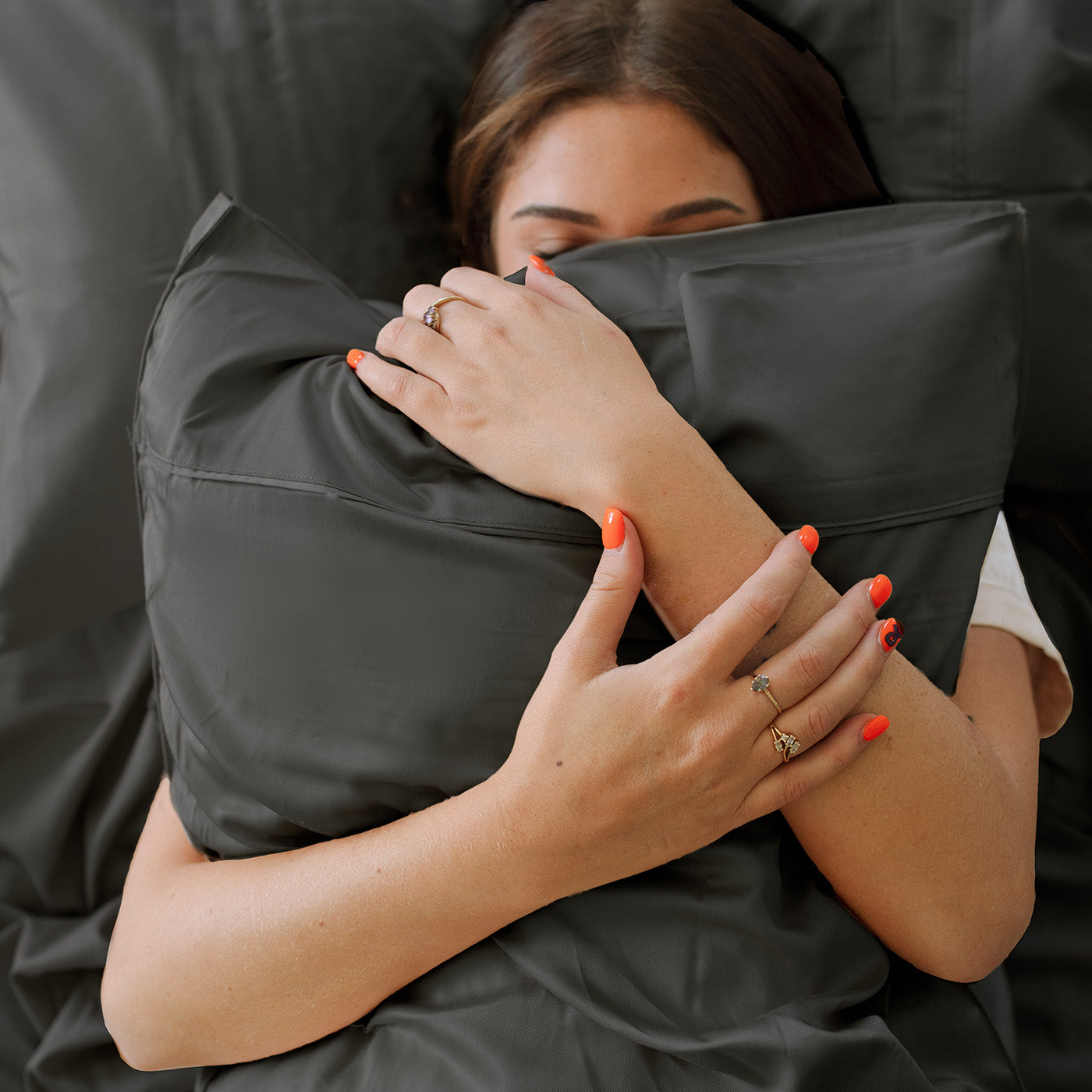

Antibacterial Properties
Bamboo is naturally anti-bacterial. That means, no more unpleasant smells on sheets blankets and towels. In its natural form, Bamboo is rarely attacked by pests and is not susceptible to diseases.
Through extensive research, Japanese scientists discovered a unique anti-bacterial agent in bamboo they called “bamboo kun”. This substance, combined with the tight molecular structure of bamboo fibres, is believed to give it its anti-bacterial and bacteriostatic properties – which is not diminished even after more than 50 washes! It’s is also quite different from chemical additives which can often cause skin irritations and other problems.

Reduces Body Odour
Did you know that cotton acts as an 'incubator' for bacteria?
Bamboo, on the other hand, provides an inhospitable environment for germs and other nasties.
In clinical trials, bacteria that was introduced to bamboo fabric was reduced to less than 0.2% of the introduced number in 24 hours whilst introduced bacteria on cotton fabric multiplied to 550 times the introduced number, also in 24 hours!
What does this mean?
Body odour results from gases produced by bacteria which live on the waste which is exuded from our bodies – sweat and dead skin cells which our bodies give off constantly as a natural part of living.
When a bamboo fibre fabric is worn against the skin:
Any moisture (sweat) is immediately absorbed and taken away from the skin
The powerful natural anti-bacterial property of the bamboo constantly keeps bacteria populations in check.

The Manufacturing Process
China is the home of bamboo forests! They have been cultivated there for many thousands of years.
The bamboo plant forms a very dense root mat. Because it’s more of a grass than a tree, bamboo does not have a tap root. It’s also partly deciduous with a lot of leaf and culm sheath drop and subsequent rejuvenation.
Many of the bamboo forests have been there for hundreds of years without any need to replant them as they naturally constantly regenerate themselves with new shoots every year, even with regular harvesting of mature timber.
In China the bamboo forests are largely very well managed according to a well founded agronomic practice, even those on remote mountainsides. Every year, every new culm is marked with its year of emergence so that it can subsequently be harvested in the right year to yield timber of the best possible quality.
Bamboo yarns and textiles are produced without the use of dangerous toxic chemicals and no polluting residues remain in the cloth when it finally wears out and is discarded. It comes from nature and is returned to nature in a smooth natural cycle. It’s been grown and husbanded for thousands of years and can continue to be husbanded for many more thousands of years without environmental degradation.
This is what is meant by complete sustainability. Very few crops can make this claim.

